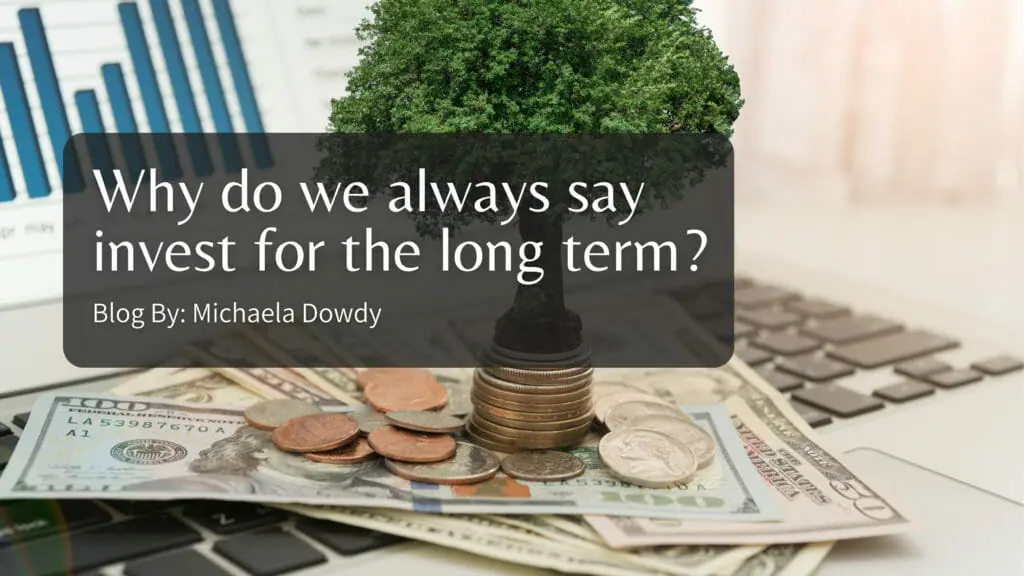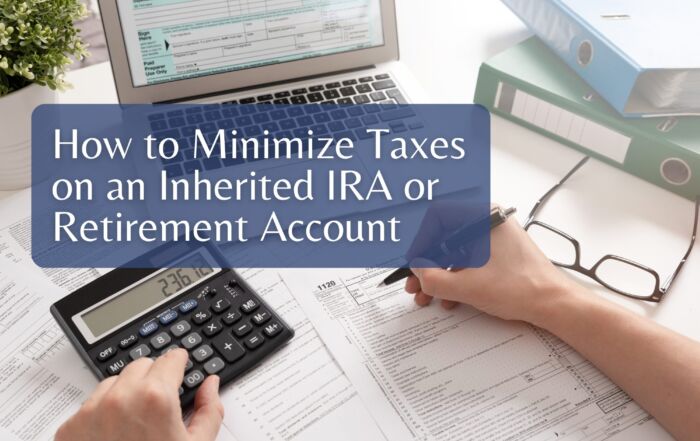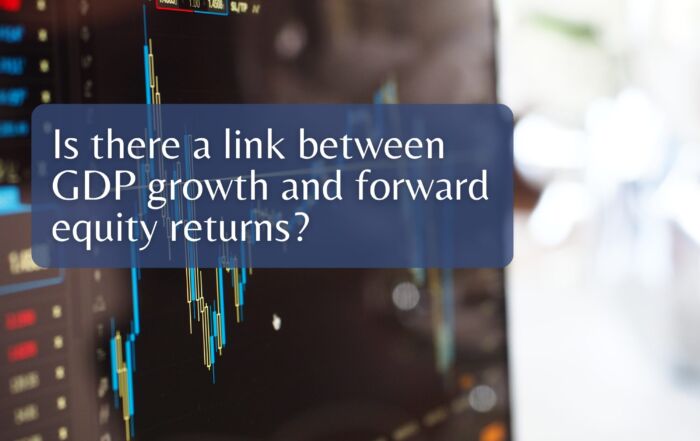Why do we always say invest for the long-term?

Fight or Flight in the Market
As we are seeing in today’s current market, the market can be turbulent in the short term. For many of us, these ups and downs trigger our fight-or-flight responses. It can make us feel as though we need to act impulsively to avoid short-term losses. But we must recognize that turbulence is a natural part of life. When there is turbulence in an airplane, do you immediately open the emergency door and jump out into the abyss? I hope not. More than likely, you sit in your seat, make sure your seat belt is on, and do something to relax your mind. We should approach investments in a similar way.
Staying the Course
There is a reason the pilot doesn’t land the plane and instead course corrects in a volatile atmosphere. The flight, like the market, has more smooth air than tumultuous air. Did you know that if you were to be invested for only a month you would have made on average positive returns 62.9% of the time? Further, if you were to be invested for 10 years, you would have had positive returns 94.9% of the time. This is why long-term investing is vital to investment growth. We don’t need to open the emergency door when the air is bumpy by running to sell off our stocks at a loss or converting to cash. Instead, we need to sit in our seats and make sure we have our seatbelt on.
Remember, you don’t realize a loss until you sell the stock. Just like you don’t realize death until you jump out of a plane at 30,000 feet with no parachute.
Flight – How can you long-term invest?
Don’t Try and Time the Market
The market cannot be timed and if you try to time it; you’ll make yourself go insane. Take this past week, for example. Financial gurus and political officials have called for an impending recession. Yet, the market responded with a surge on the news of a recession. It’s like trying to buy a plane ticket, you can do all of the “tips and tricks” to get a cheaper flight, but at the end of the day you can’t 100% predict the lowest price to travel. In the long run, it is better to just buy the ticket. As for the market, if you miss out on the 10 best market days of the year, your portfolio loses on average 3% annualized performance comparative to one that stayed in the market the entire year. If you miss the 30 best days, you will end up in a loss on your overall portfolio. You can’t time those best days, because by the time their classified as the best days, you’ve already missed them.
Know your Time Horizon
You have to know what time your flight departs in order to arrive at the airport on time for boarding. In that same way, you need to know what age you plan to retire to know what time your portfolio needs to be prepared for departure. The amount of time you have to invest until you need to start making regular withdrawals will largely affect the strategy you take. If you are in your 20s, then you essentially have over 20 years to invest because your risk capability is higher as you have more time to recover from a down market. Someone who is a young investor should be more involved in the market with an all-equity portfolio of 90% stock and 10% bond. Whereas if you’re in your 60s, your risk capability is different because your time horizon is not as long. In that way, someone in their 60s would be closer to a 70% stock and 30% bond model until retirement then move to a 60% stock and 40% bond in retirement. By knowing your time horizon and strategy, it gives you the freedom and knowledge base to invest with purpose.
Diversification
Diversification is your seatbelt in turbulent markets. It allows you to feel secure when different sectors and markets may produce negative returns. A diversified portfolio won’t feel the lows of the market as much and won’t feel the highs of the markets to their full capacity. It allows you to have steadier gains in the market while minimizing loses. You can get diversified accounts by investing in ETFs that mirror the S&P 500 or ones that have specific sectors like tech companies or corporations that have strong sustainability efforts. If you choose to invest in specific sectors, be sure to diversify those by including REIT, International Stock (Emerging and Developed), Bonds, etc. This balance will largely depend on your portfolio strategy. Ultimately, to have the best performing seatbelt you need a portfolio that reflects your strategy.
You are ready to take flight! To invest long term is to relax into the strategy your risk tolerance and capacity align with. It is allowing your money to work for you without bearing the stress of timing the market or picking the best value individual stocks. Your money is working toward your end goal. When it comes time to change strategy or allocation, contact your financial advisor for their recommendations. Pro-Tip: Be mindful of advisory fees, fund fees, and other expenses. ETFs are a great low-cost choice. Happy Investing!
Have more questions? Contact Us
Michaela Dowdy
Financial Planning Associate
Share This Story, Choose Your Platform!
Wiser Wealth Management, Inc (“Wiser Wealth”) is a registered investment adviser with the U.S. Securities and Exchange Commission (SEC). As a registered investment adviser, Wiser Wealth and its employees are subject to various rules, filings, and requirements. You can visit the SEC’s website here to obtain further information on our firm or investment adviser’s registration.
Wiser Wealth’s website provides general information regarding our business along with access to additional investment related information, various financial calculators, and external / third party links. Material presented on this website is believed to be from reliable sources and is meant for informational purposes only. Wiser Wealth does not endorse or accept responsibility for the content of any third-party website and is not affiliated with any third-party website or social media page. Wiser Wealth does not expressly or implicitly adopt or endorse any of the expressions, opinions or content posted by third party websites or on social media pages. While Wiser Wealth uses reasonable efforts to obtain information from sources it believes to be reliable, we make no representation that the information or opinions contained in our publications are accurate, reliable, or complete.
To the extent that you utilize any financial calculators or links in our website, you acknowledge and understand that the information provided to you should not be construed as personal investment advice from Wiser Wealth or any of its investment professionals. Advice provided by Wiser Wealth is given only within the context of our contractual agreement with the client. Wiser Wealth does not offer legal, accounting or tax advice. Consult your own attorney, accountant, and other professionals for these services.





